For the past 20 years, Nicole O’Malley has traveled across Rhode Island to provide a unique yet important service: using music to treat patients with physical and cognitive challenges. The work is part of her effort to apply her clinical experiences to new research collaborations with peers in disciplines such as psychology and physical therapy.
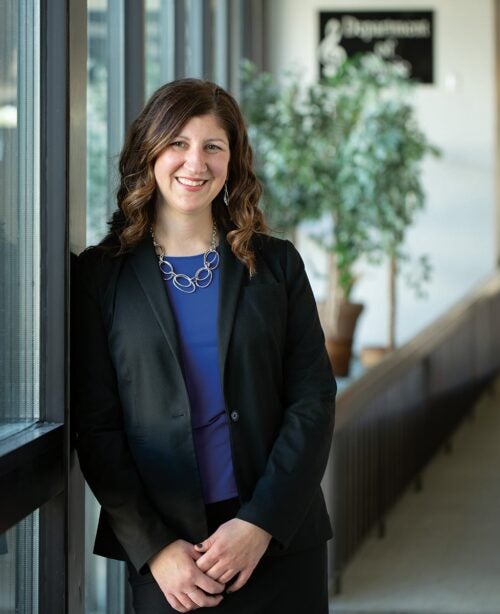
“I have been in this position for five minutes, but my lab will be the first in the region that focuses on the neurobiological impact of music,” says O’Malley, recently promoted to assistant professor at the University of Rhode Island (URI), and currently conducting research with fellow faculty member Christine Clarkin, URI assistant professor of physical therapy.
“Because we’ve been clinicians for so long, we want to know the impact of our studies and how they can be disseminated to communities at large.”
When people run, they often listen to music to keep their movement in time with the beat. Or they go to a concert and connect with a stranger over a favorite band’s new song. In these situations, the brain releases neurotransmitters and adapts its neural networking system to improve cognitive, communicative, and sensorimotor capabilities, while strengthening social and emotional responses to the surrounding world.
O’Malley has treated nearly every clinical condition possible, from elderly patients looking to regain motor skills after a stroke to children suffering from mental health issues after the death of a parent.
Music, she says, is innate.
“When you’re relearning how to walk at 50, 60, 70 years old, all of a sudden you have to reacquire skills that don’t come second nature anymore,” says O’Malley, who is also director of URI’s music therapy program. “What is the emotional impact? Will you learn to walk again if you’re depressed?”
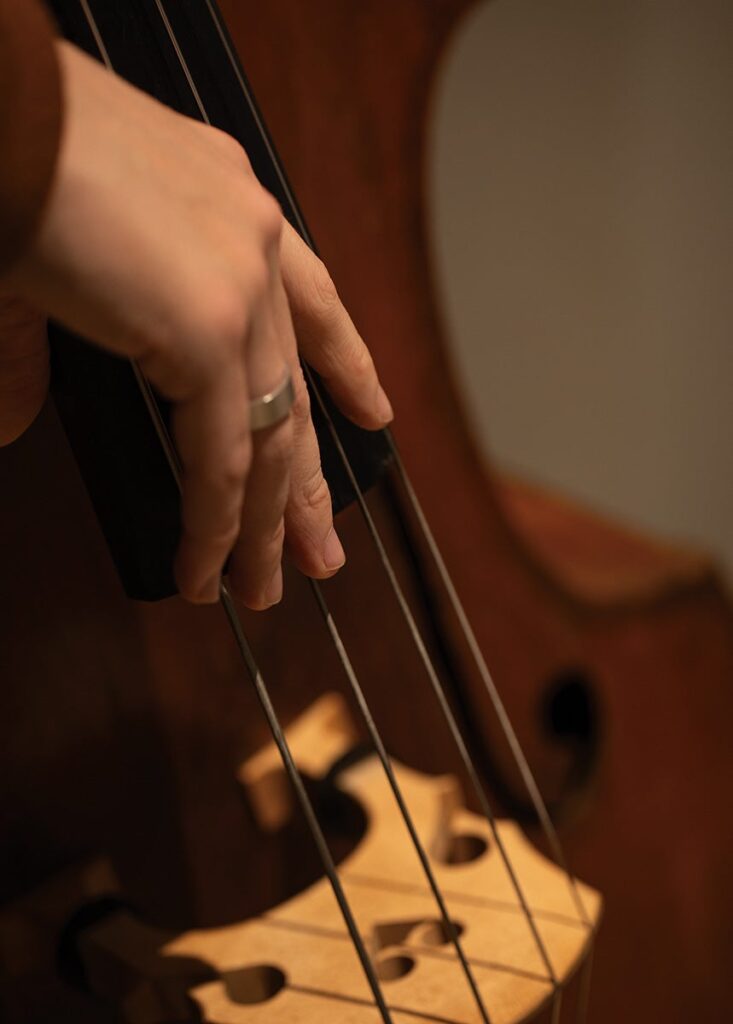
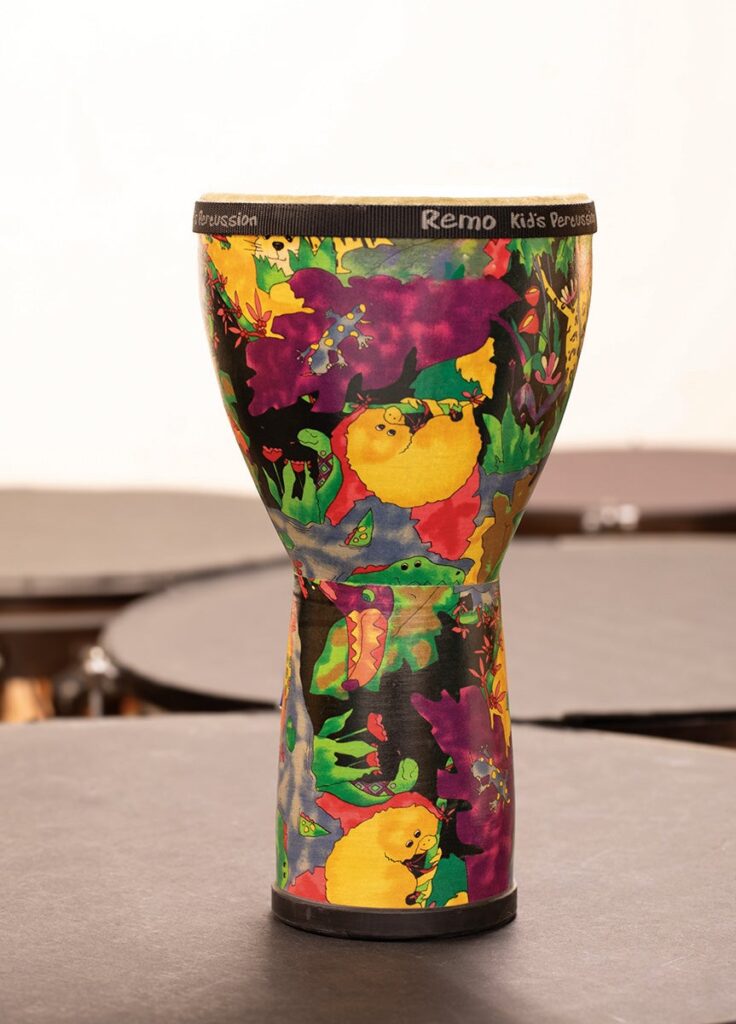
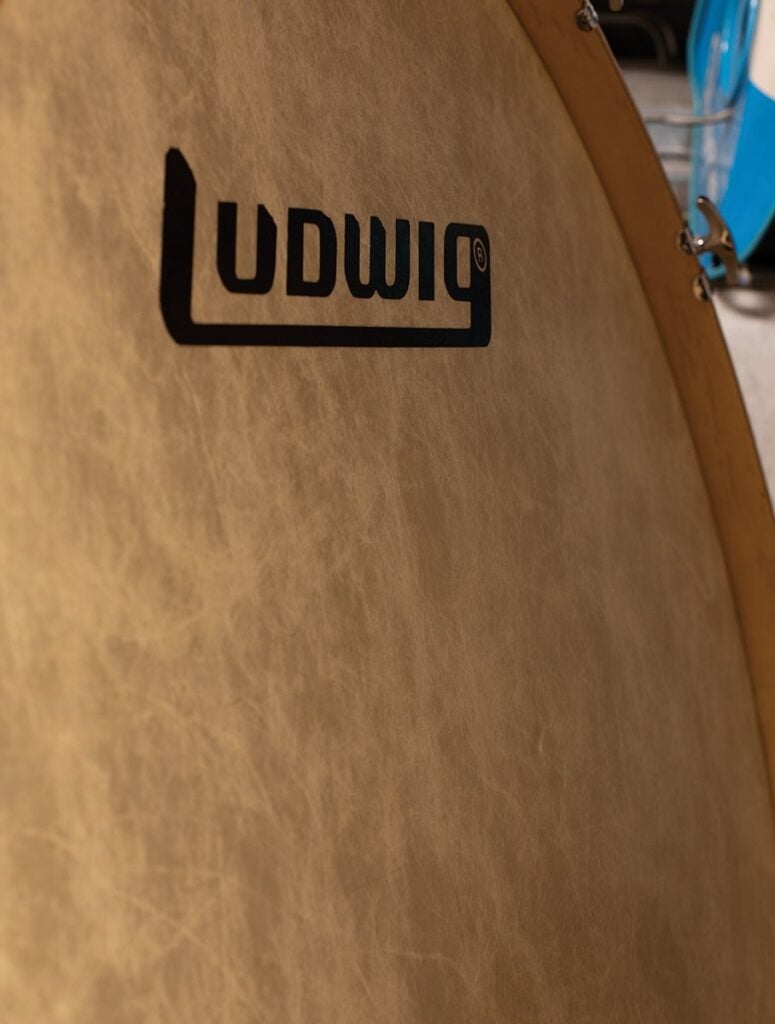
Music feeds us, just listening to a song we like turns our reward circuits on, circuits that help with a lot of other skills.Nicole O’Malley
Recognized as a clinical profession since the 1950s when World War I and II veterans needed innovative treatment for post-traumatic stress disorder (PTSD), music therapy has evolved to incorporate culturally responsive practices based on patient choice.
“Music feeds us,” she says. “Just listening to a song we like turns our reward circuits on, circuits that help with a lot of other skills.”
O’Malley’s work helps to not only treat individuals clinically, but also build community.
“I don’t just slap on a song and say, ‘you’re cured!’” she says. “Driven by music preference and neuroscience, we work in a variety of settings, including aging. I had a client from Cambodia with whom we were working on strategies for emotional coping. She preferred Khmer music for relaxation, which is not music our ears are accustomed to in Western cultures.
“Khmer was the style of music we needed to reach her goals.”

Developing a strong base of practitioners in Rhode Island remains in the nascent stages, starting with legislation adopted in 2014 by Gov. Gina Raimondo, recognizing music therapists as official health professionals through the Rhode Island Department of Health. O’Malley led the state’s task force for writing that legislation.
Now, O’Malley is working on publishing her first manuscript about assessing the impact of collaboration among physical and music therapy students through the URI Physical Therapy Department’s Parkinson’s Exercise Program (PEG) with Assistant Professor Clarkin. Led by physical therapy doctoral students, PEG is a community-based exercise program for Rhode Island residents diagnosed with the neurodegenerative disorder.
The research examines how these collaborations effectively support patients through combined physical and music-based treatment, as well as assess student attitudes and readiness to conduct interdisciplinary work.
“Our collaboration organically focused on problems we saw while in our clinical roles,” O’Malley explains. “Supporting our students’ need to learn interdisciplinary skills required for successful professional careers in our respective disciplines requires experience during their clinical rotations at URI and the hands-on experiential time to learn collaborative communication.”
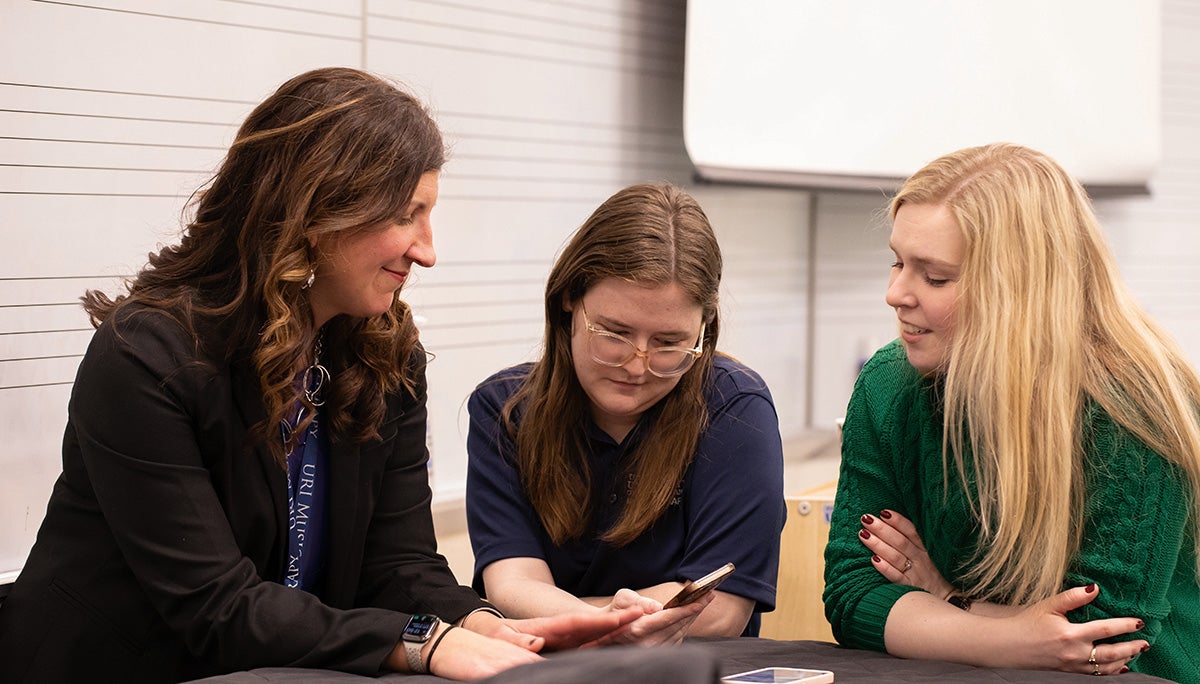
Clarkin adds, “By training our students early on, we embed the expectation that solutions come more readily when we work together as a team. Once they see the impact that their teamwork has on positive client/patient outcomes, they are more open to continue to practice and adopt this mindset.”
O’Malley says she is buoyed by the ‘a-ha’ moments her students share, and knows their contributions are crucial to improving evidence-based practices for music therapists in the future.
“There was one moment while observing the interprofessional collaboration last semester when my music therapy students jumped into helping a patient,” she says. “The physical therapy students were like, ‘wait, look what is happening!’ They fed off each other.”
Although finding ways to bring her research to already existing programs across campus is the ultimate goal for O’Malley’s newly established lab, she says she misses the rewarding experience of treating patients across the state with the neurobiological benefits of music therapy directly.
“When I pushed my first client, who is still with our clinic today, too hard, she would say, ‘You’re fired, Ms. Nicole, you’re fired,’ says O’Malley. “She struggled with certain tasks, but when I changed from speaking to singing my instruction, things would just click.
“This work is intense and there are cases that stick with me, but when I’m doing something like songwriting with a patient and seeing the connection to their mental and emotional health, those moments fill me up.”
